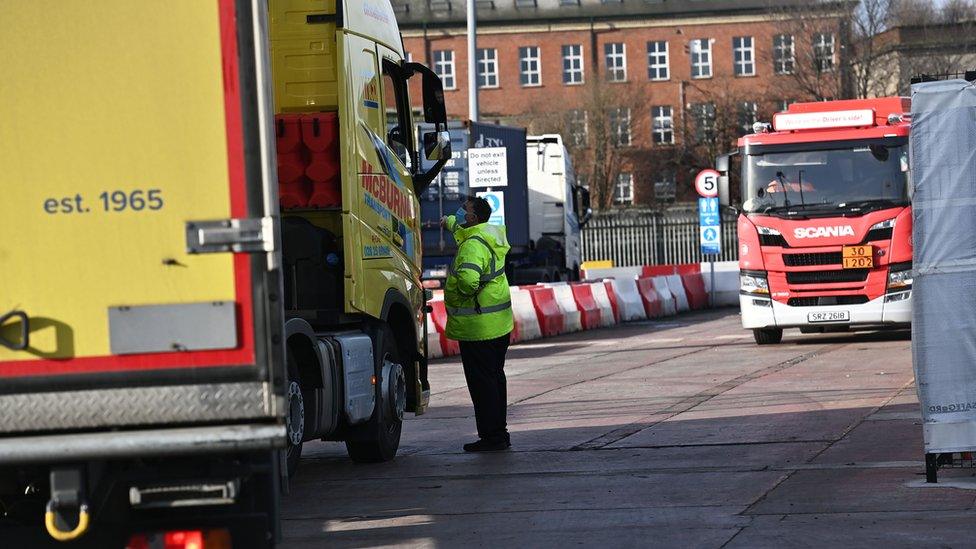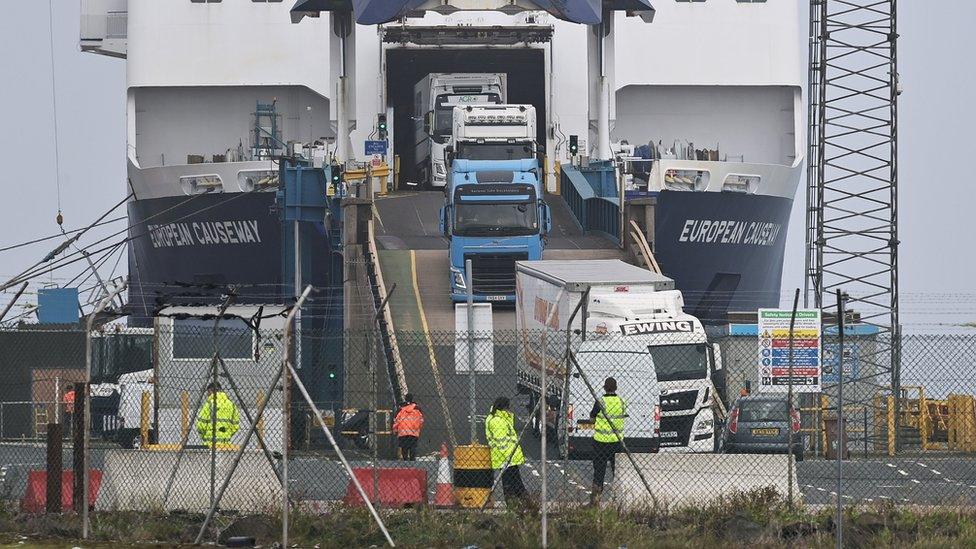NI Protocol: What next for plans to override part of Brexit deal?
- Published
- comments

Good crossing the Irish Sea face customs checks at Northern Ireland's ports
You could say the Northern Ireland Protocol now has a backstop.
But just like the original backstop it may struggle to survive in the heat of Westminster.
The bill which will allow the government to ignore parts of the protocol comfortably cleared its first hurdle in the House of Commons on Monday night.
But the next hurdle will provide a much stiffer test with Tory rebels waiting in the wings.
Those like Theresa May, Julian Smith and Simon Hoare who abstained last night will have the chance to support amendments stripping out the bill.
However they may opt to hold fire until the bill returns from the House of Lords, where it is likely to be gutted by the pro-remain peers.
The government has the numbers to repair any damage but the Lords can frustrate and prolong the bill's passage.
That is why the Democratic Unionist Party (DUP) has sought assurances from the prime minister that he will invoke the Parliament Act, which limits the scope of the Lords to delay the bill.
If invoked it ensures the bill will be back in the Commons by this time in 2023.
DUP's 'graduated response'
In the meantime the DUP has a call to make.
The government expects the party to re-engage with the power sharing institutions once the bill passes through the Commons in July.
That would allow the government to argue the legislation is already working and put pressure on those planning to vote against the bill and risk another collapse.
If the DUP does as the government expects and clears the way for the Northern Ireland Assembly to return in the autumn, don't be surprised to hear Sir Jeffrey Donaldson say the party will reserve the right to walk away again if the protocol bill is derailed.
The DUP's "graduated" response means it will likely hold back on reforming an executive until the bill returns from Lords.
But there is another added complication: the deadline set in the Stormont safety net legislation after which the Northern Ireland secretary is legally obliged to call an election if there is no executive formed.
That deadline is 28 October, just weeks after the protocol bill is likely to land in the Lords.
With little prospect of the DUP being back in the executive by then, that cut off date it is likely to join the long list of broken political deadlines.
We may end up with new legislation at Westminster to extend that deadline.
You could call it a safety net for the safety net.
Related topics
- Published27 June 2022

- Published2 February 2024

